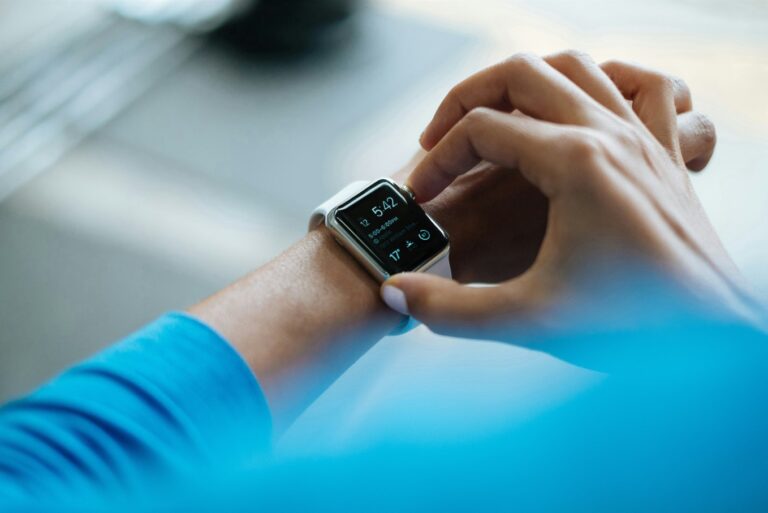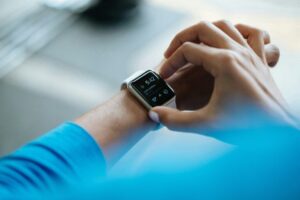
Matthew Calleja
29th January 2024
Doctor’s Heroic Act Sparks MedTech Debate Amidst Apple Hardships
How does a doctor respond to a medical emergency in the confined space of an aircraft, armed only with limited resources? Are legal disputes hindering the advancement of medical technology? What global conversations surround these critical healthcare issues?
Let’s delve into the significant day when Dr. Rashid Riaz used an Apple Watch to rescue a patient under challenging circumstances. Furthermore, let’s explore the implications of this event for the growing significance of wearables in healthcare and their tangible impact on real-world situations.
This hero wears his cape on his wrist

The incident, which unfolded on January 9, sheds light on the practical applications of wearable technology in healthcare.
Dr. Riaz, who was en route to a skiing holiday, responded to a call for medical assistance when the woman, in her 70s, experienced shortness of breath. Utilising the health-monitoring features of the borrowed Apple Watch, Dr. Riaz assessed the patient’s oxygen levels.
Despite the watch’s disclaimer that its Blood Oxygen app is not intended for medical use, Dr. Riaz leveraged its capabilities to make informed decisions.
“The Apple Watch helped me find out the patient had low oxygen saturation,” the medic explained.
He further engaged with the patient’s husband in their native Urdu, Dr. Riaz to discover her history of heart issues.
Requesting an on-board oxygen cylinder from the staff, Dr. Riaz diligently monitored and maintained the woman’s saturation levels until the flight safely landed in Italy approximately an hour later.
While acknowledging the responsive actions of the Ryanair staff, Dr. Riaz took the opportunity to advocate for a broader initiative. He called on airlines to consider incorporating emergency physician kits as standard protocol on flights.
“These things can save someone’s life in an emergency situation,” he added.
Patent battles undoing MedTech progress
Dr. Riaz’s inspiring intervention underscores the practicality of wearable tech in healthcare, prompting a vital conversation on the need for standardised emergency resources on flights. However, not everyone shares this sentiment. The ongoing developments in the Apple Saga suggest a concerning trend where valuable features, akin to the ones utilised by Dr. Riaz, are facing the possibility of being phased out.
A sales ban now affects Apple’s Series 9 and Ultra 2 models due to a patent dispute with Masimo over the blood oxygen feature, impacting current and potential releases.
Bloomberg’s Mark Gurman notes that removing this feature may affect upcoming models, impacting sleep apnea detection. Reliable blood oxygen data is crucial for accurate results, questioning the feasibility of this feature without the contested sensor.
Apple aims to reintegrate blood oxygen tracking into future models despite Masimo’s public criticism.
Alongside smartwatch challenges, Apple faces a $316 billion stock loss across major tech stocks, with downgrades from Barclays and Piper Sandler contributing to a turbulent start for the tech giant.
This multifaceted challenge tests Apple’s resilience as it navigates legal battles, feature setbacks, and financial downturns.
Discussing what matters at Med-Tech World Malta

Enforcing a ban on Apple devices with the blood oxygen feature earlier could have jeopardised success stories like Dr. Riaz’s heroic intervention, potentially leading to unnecessary casualties, long-term effects on patients, and even death, causing grief for families.
It’s vital to recognize that MedTech devices play an increasingly pivotal role in managing chronic conditions. This was extensively discussed in an expert panel during the Med-Tech World Malta 2023 Summit held last October. Dr. Abdul Rahyead, Co-Founder of Peer, led a compelling conversation on the burgeoning impact of medical technology.
The panellists were:
- Ariana Adjani, Co-Founder at Fine Treatment;
- Dr. Sabina Kaposki, Global Strategy Advisor;
- Vinoy Vijayan, Medical Stakeholder Ambassador at Byteflies;
- Dr. Matthieu Poudevigne, GP Registrar at Imperial College Healthcare NHS Trust.
Be ahead of the game with Med-Tech World
Stay informed and engaged with the latest in MedTech and Digital Health. Subscribe to our YouTube channel for exclusive keynotes and panel discussions featuring the brightest minds in the industry. Explore our News page for real-time updates on events and the most recent developments in MedTech and Digital Health.




